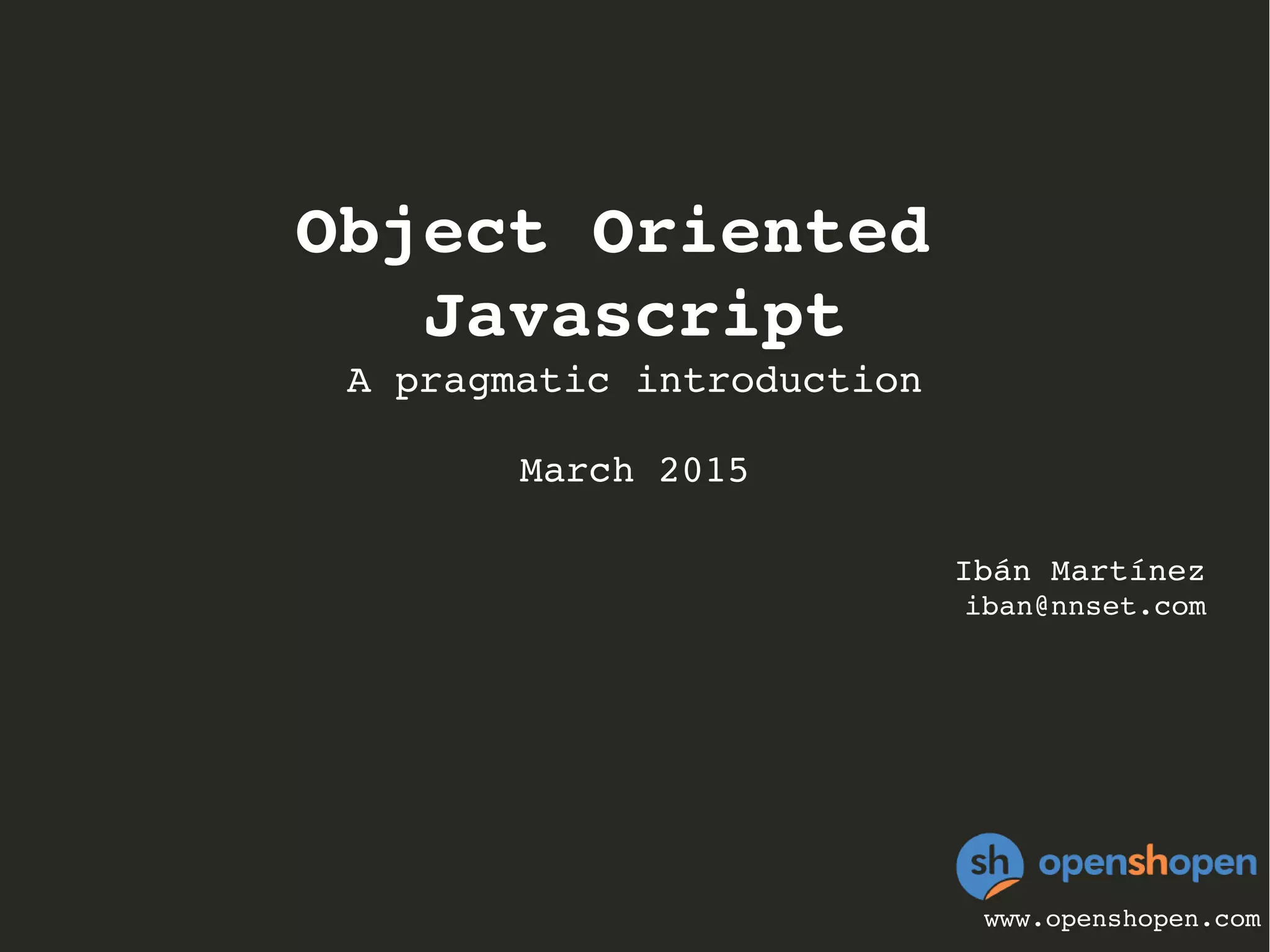This document provides an introduction to object-oriented programming concepts in JavaScript. It discusses the differences between class-based and prototype-based programming, and how JavaScript uses prototype-based programming. It then demonstrates how to create objects using the new operator and Object.create method, and how to define properties and methods on objects. Additional features of Object.create like immutable properties and accessors are also covered.
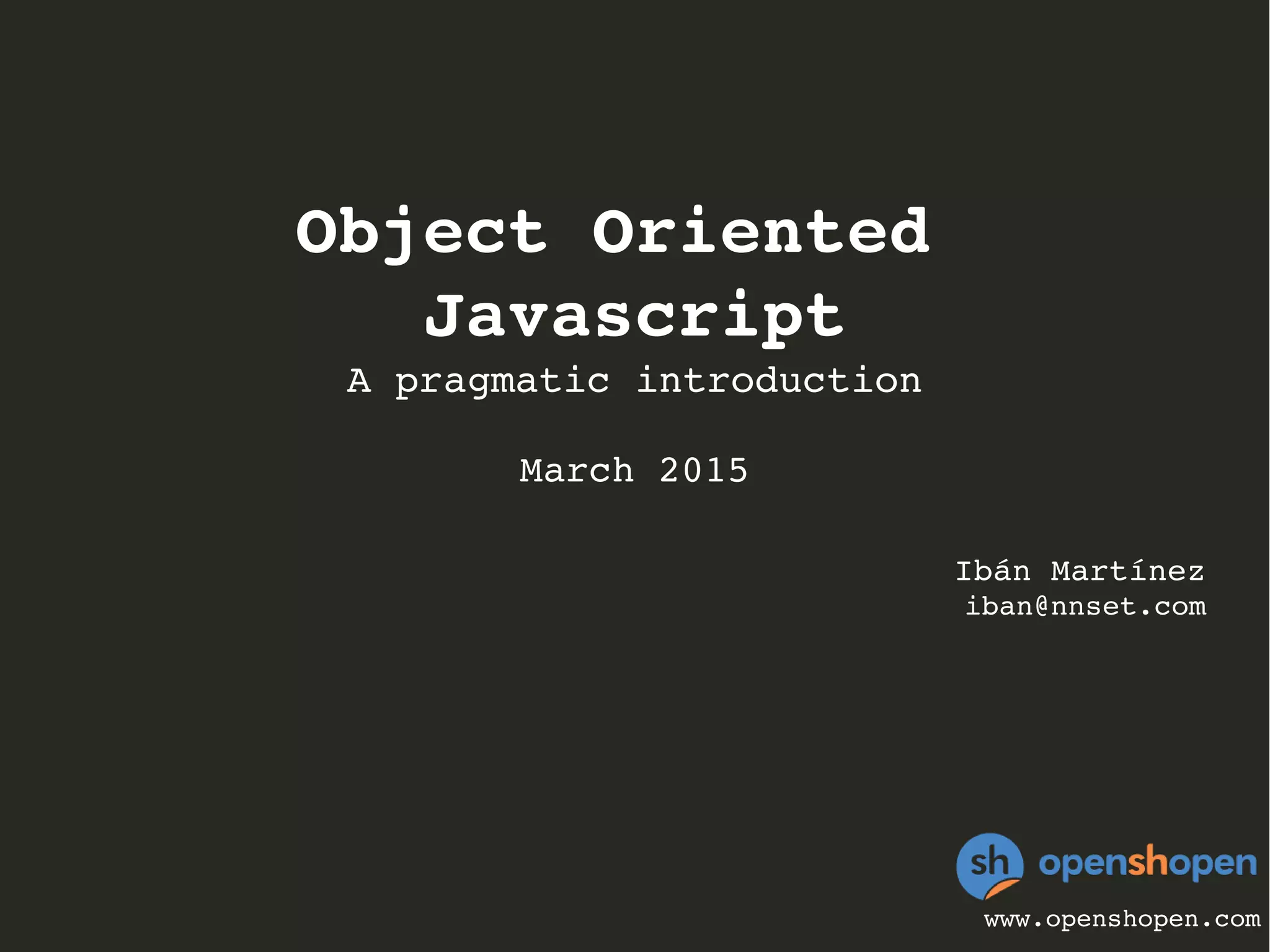
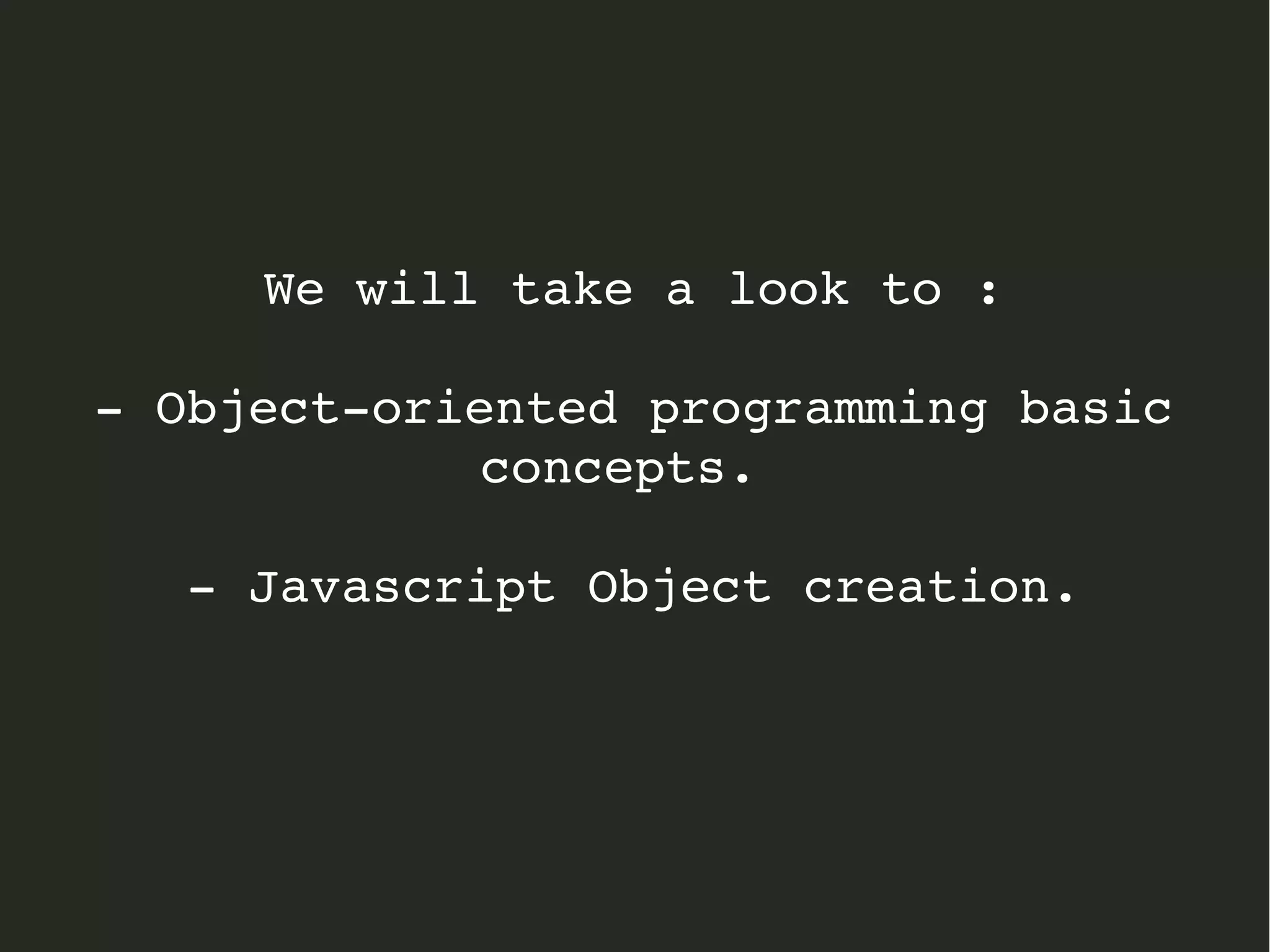
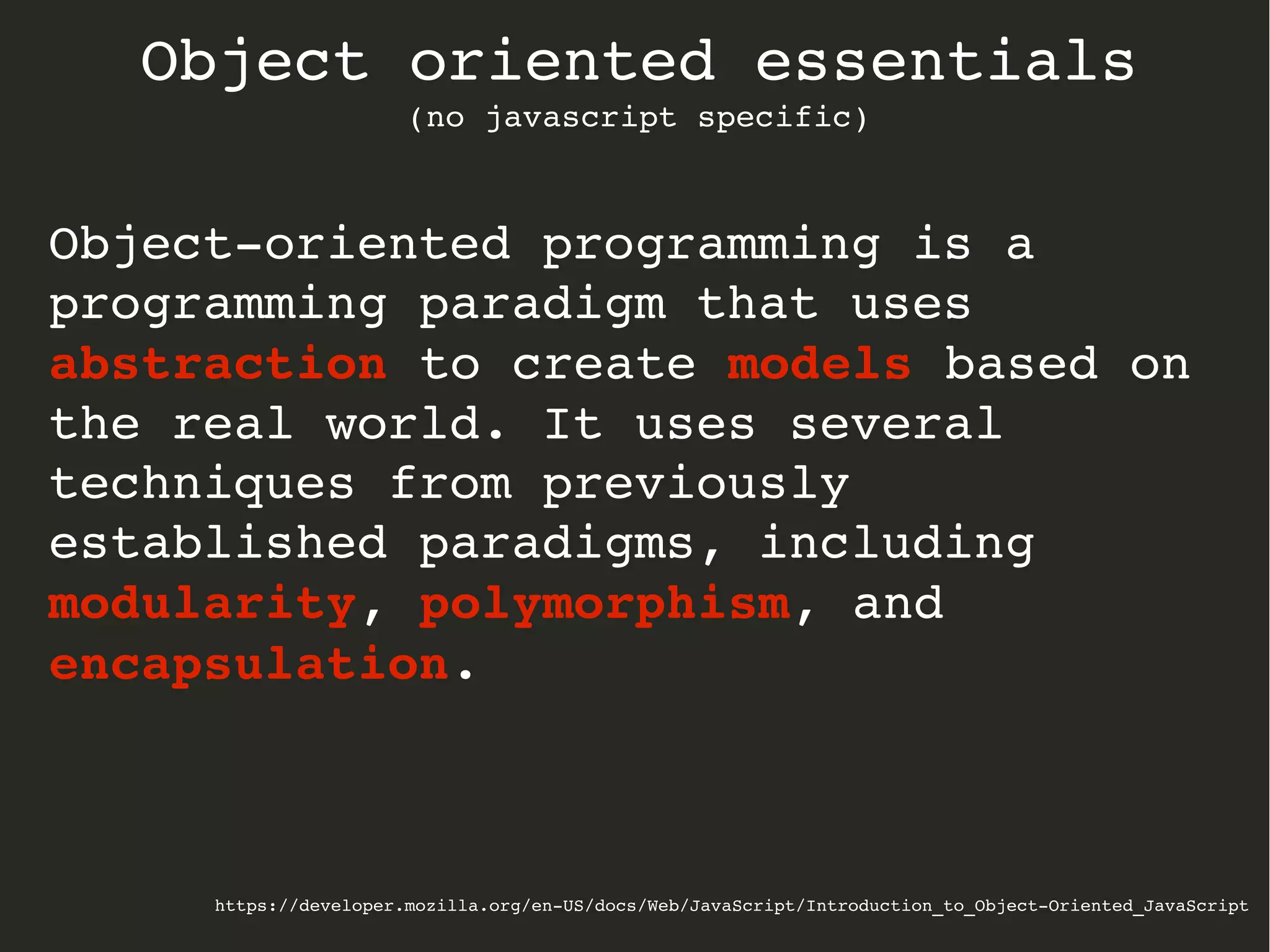
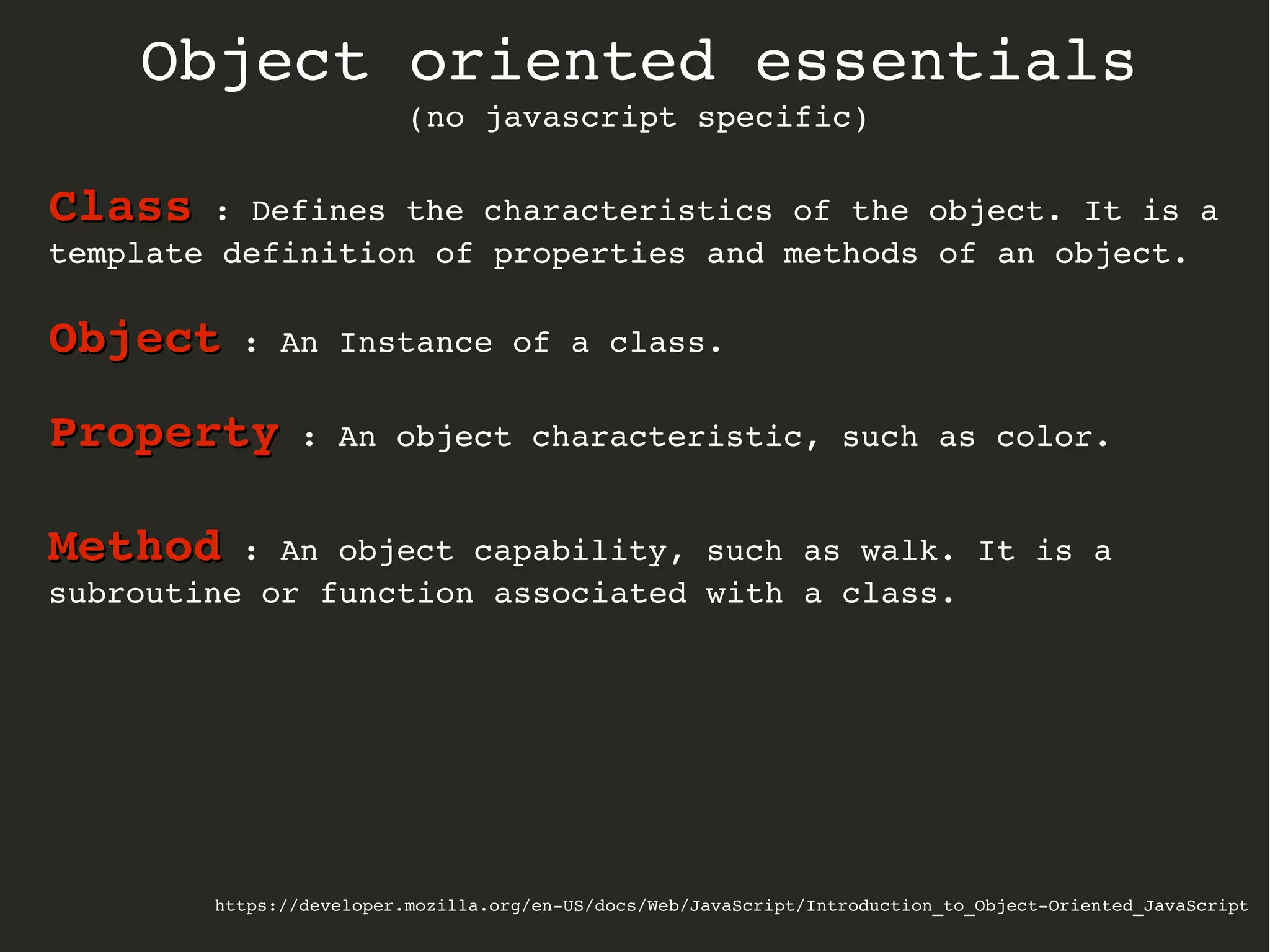
![Object oriented essentials
(no javascript specific)
ClassClass
class ShoppingCart {
[...]
}
ObjectObject
$myCart = new ShoppingCart();
PropertyProperty
class ShoppingCart {
public $ownerName = 'Mike';
}
MethodMethod
classclass ShoppingCart { ShoppingCart {
public $ownerName = 'Mike';
public function addProduct(Product $product){
$this>appendProductToShoppingList($product);
$this>updateTotalPrice();
}
}](https://image.slidesharecdn.com/objectorientedjavascript-150308120703-conversion-gate01/75/Object-Oriented-Javascript-5-2048.jpg)
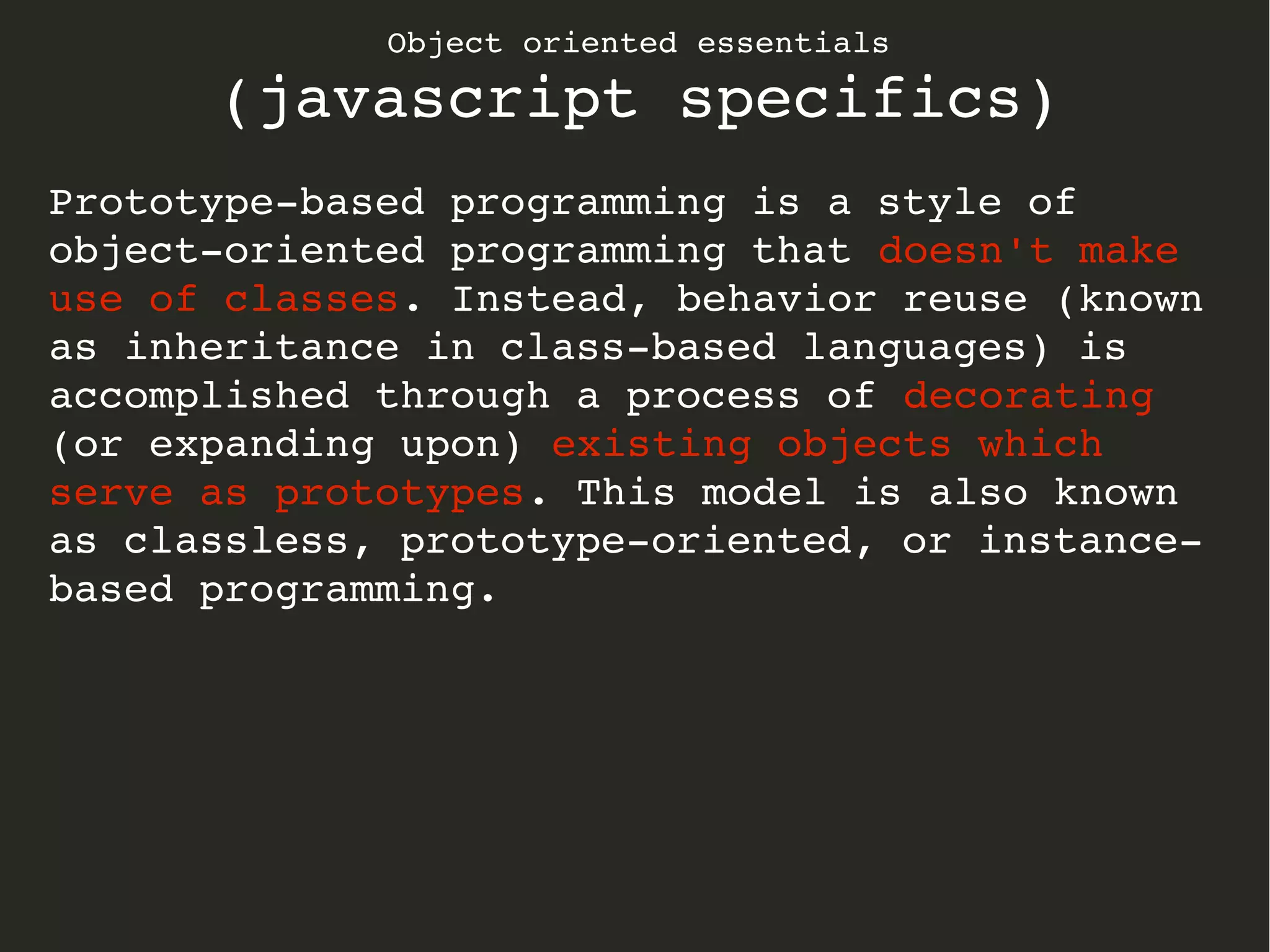
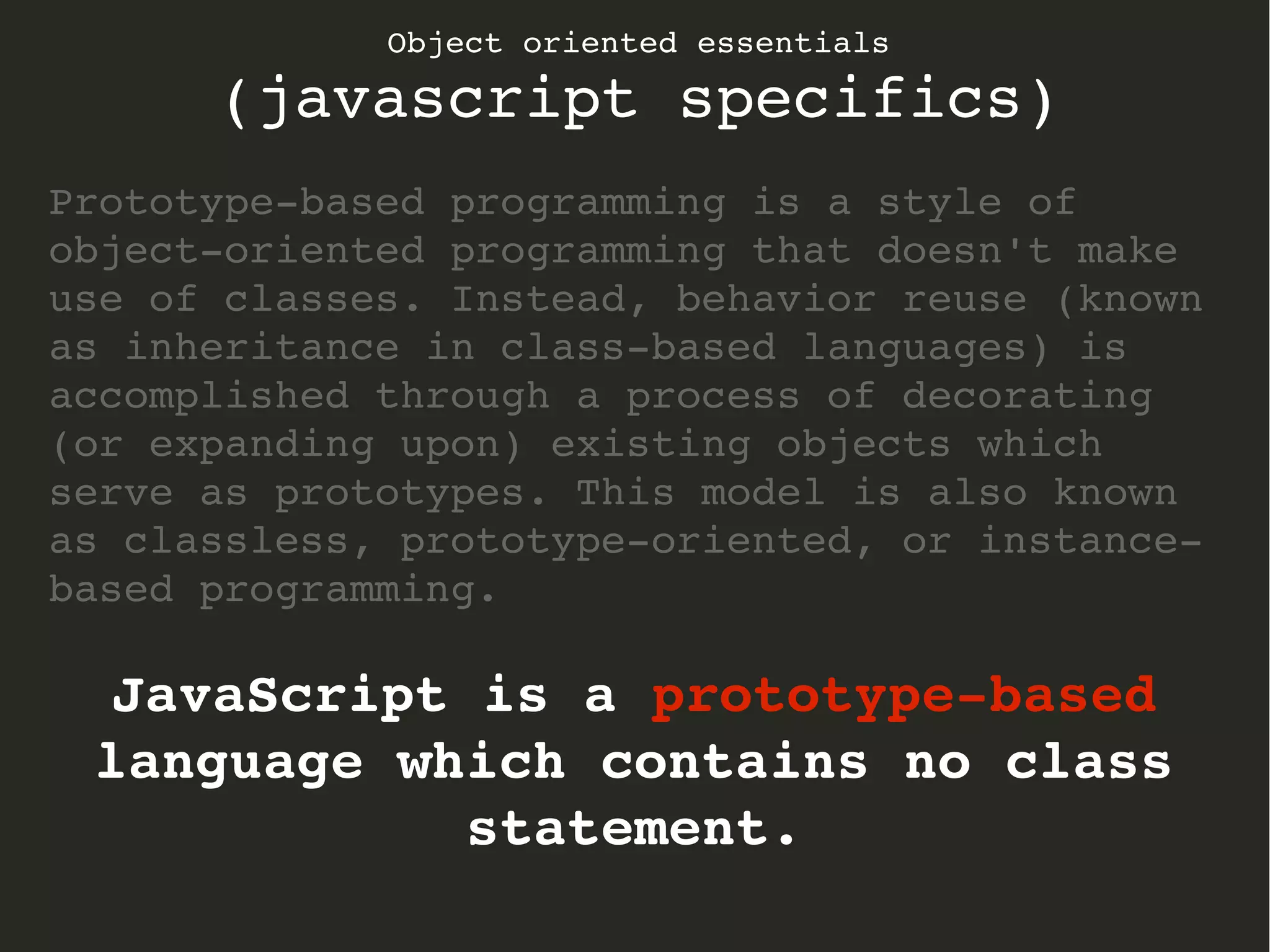
![Object oriented essentials
(javascript specifics)
What is an 'object' for Javascript?
typeof({});
=> 'object'
typeof([]);
=> 'object'
typeof(null);
=> 'object'
typeof(new String());
=> 'object'
typeof(new Number());
=> 'object'
typeof(new Boolean());
=> 'object'
typeof(new Object());
=> 'object'
In JavaScript, almost
everything is an object.](https://image.slidesharecdn.com/objectorientedjavascript-150308120703-conversion-gate01/75/Object-Oriented-Javascript-8-2048.jpg)
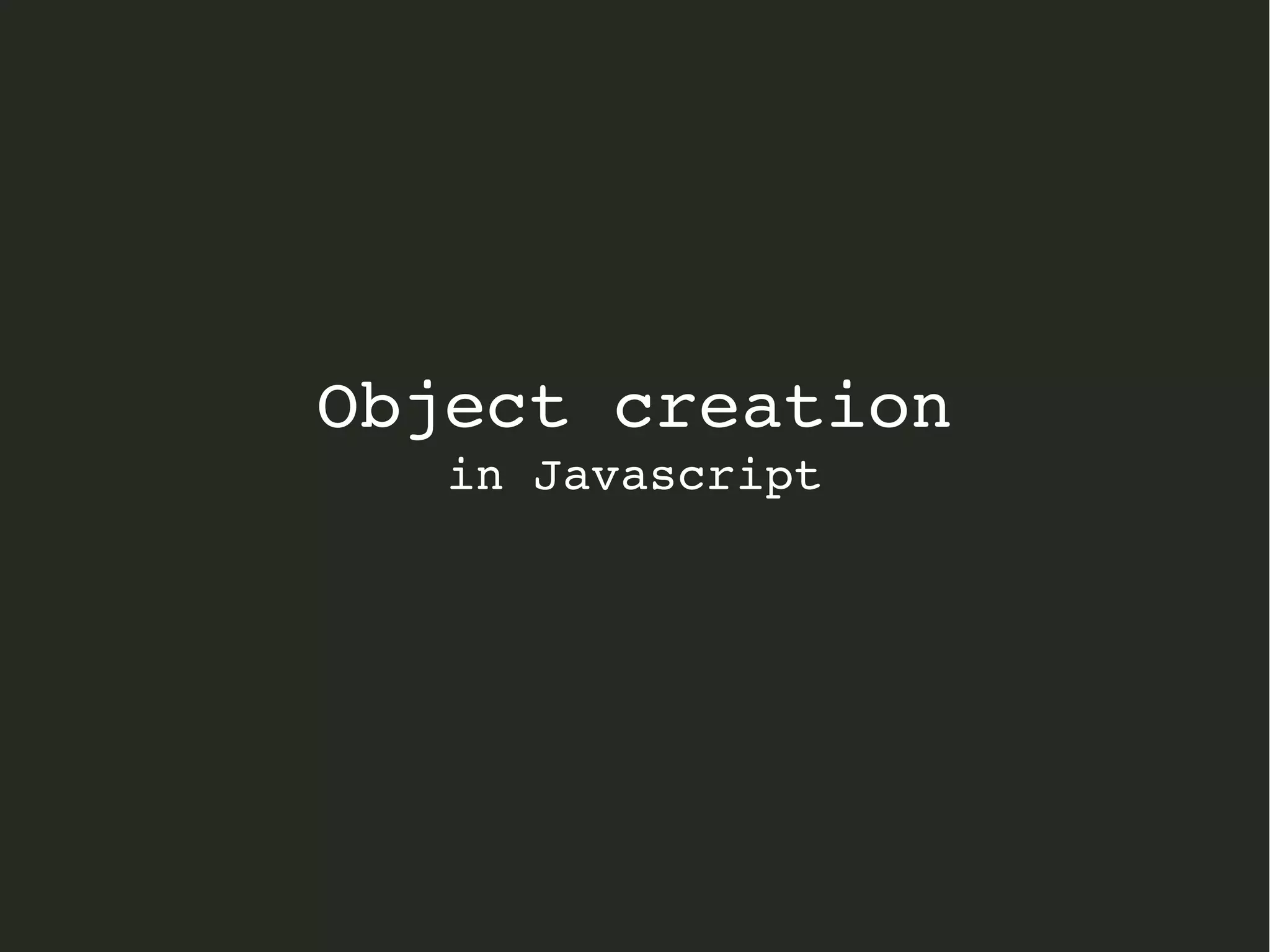
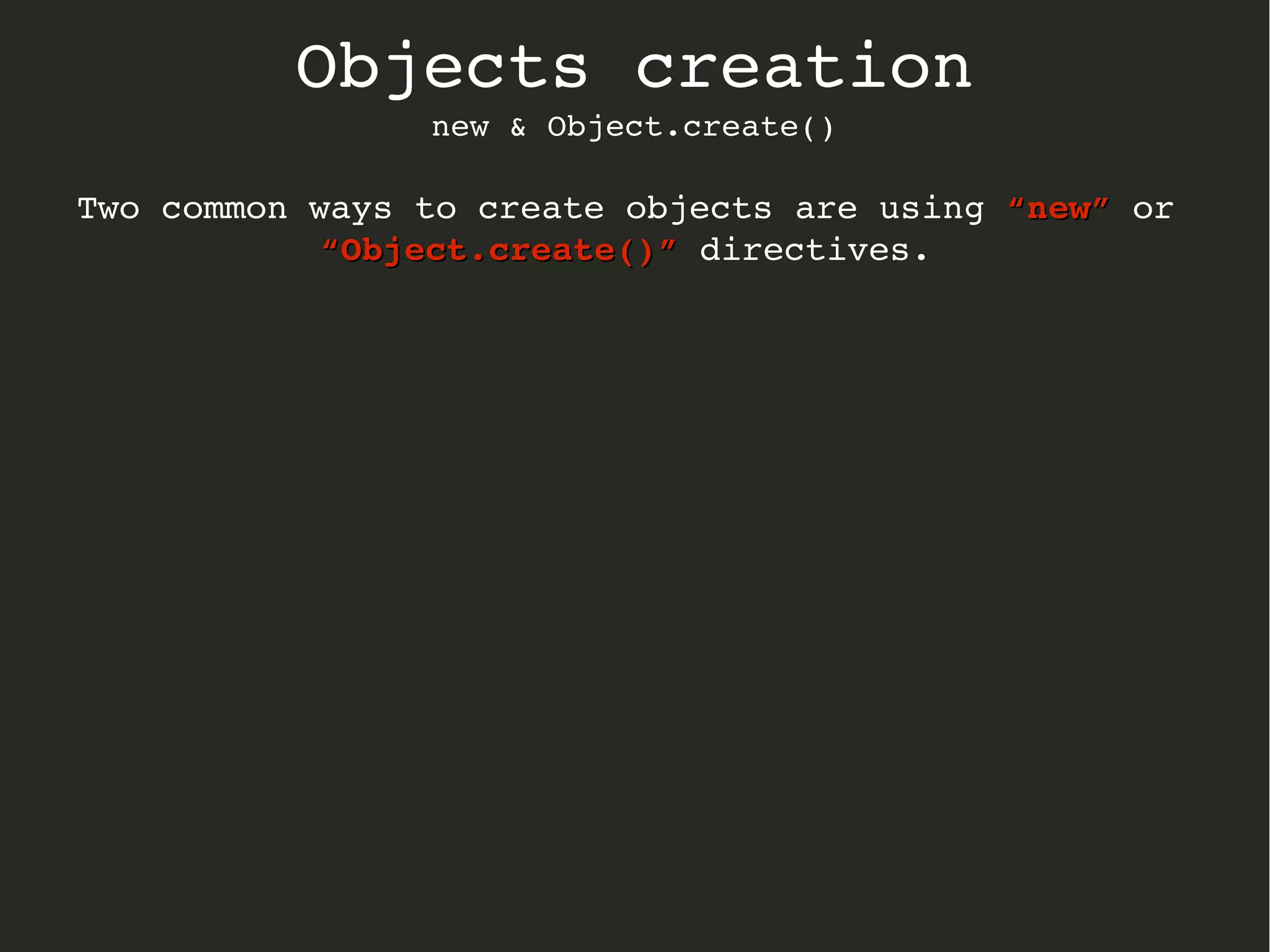
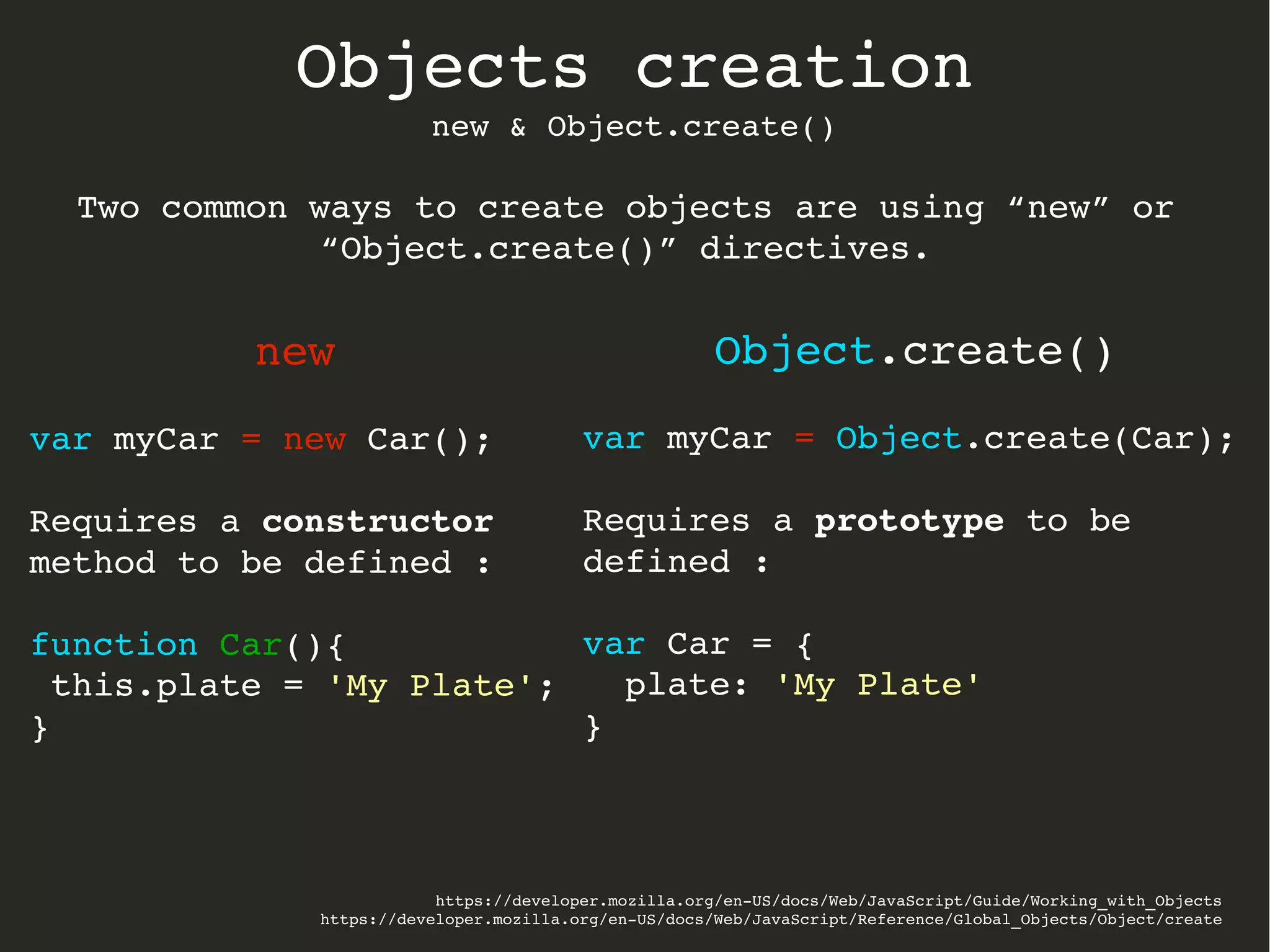
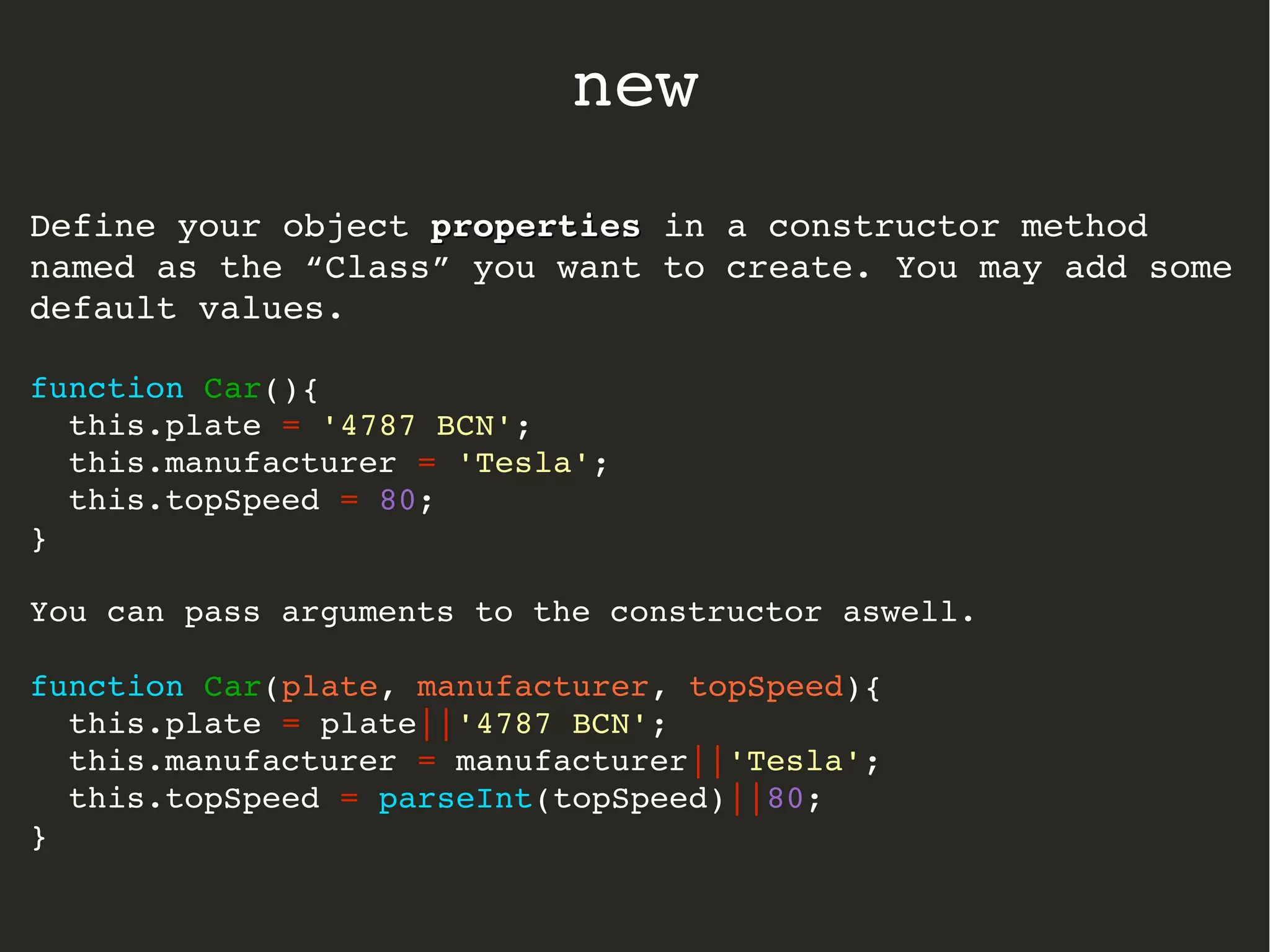
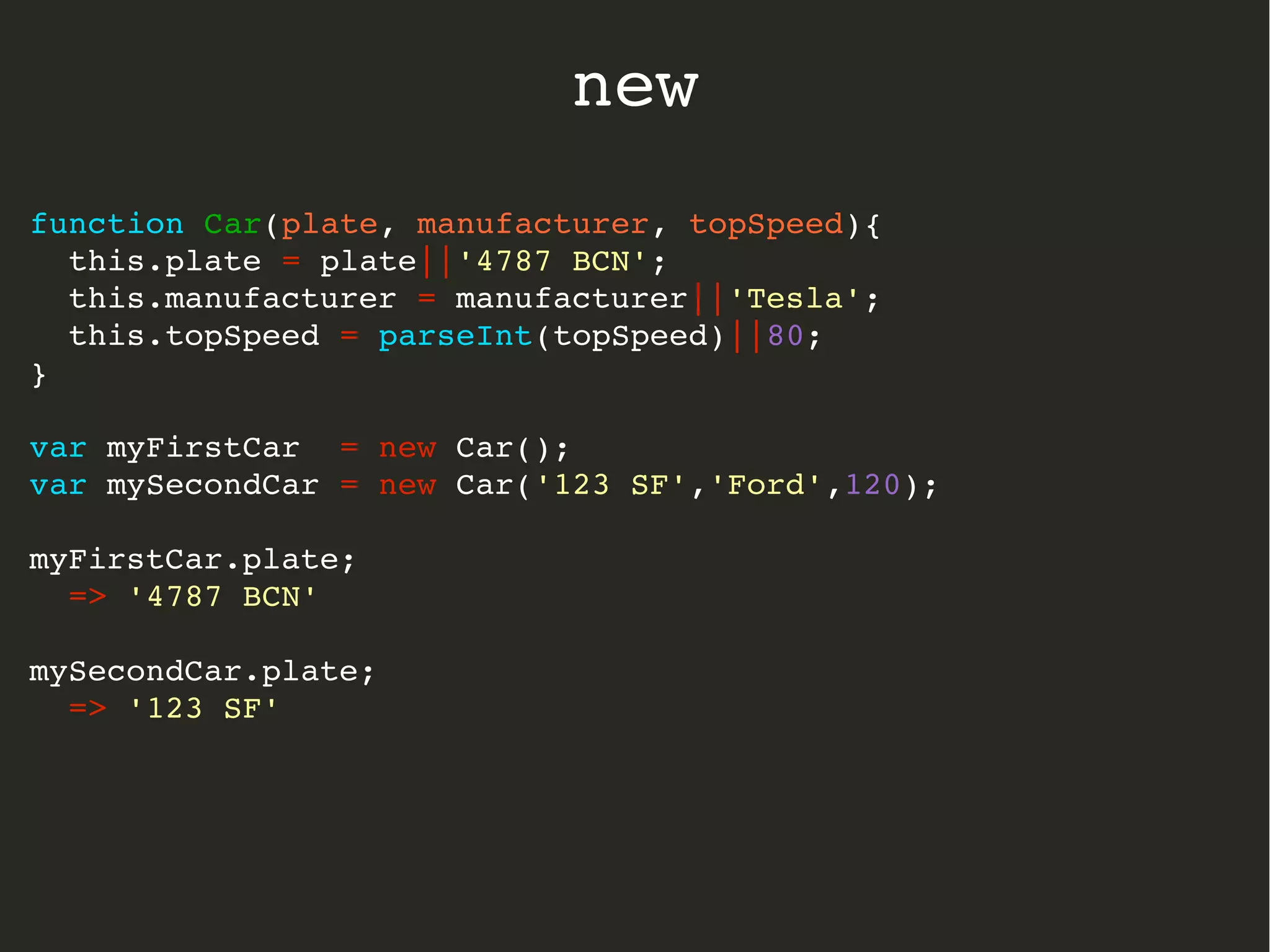
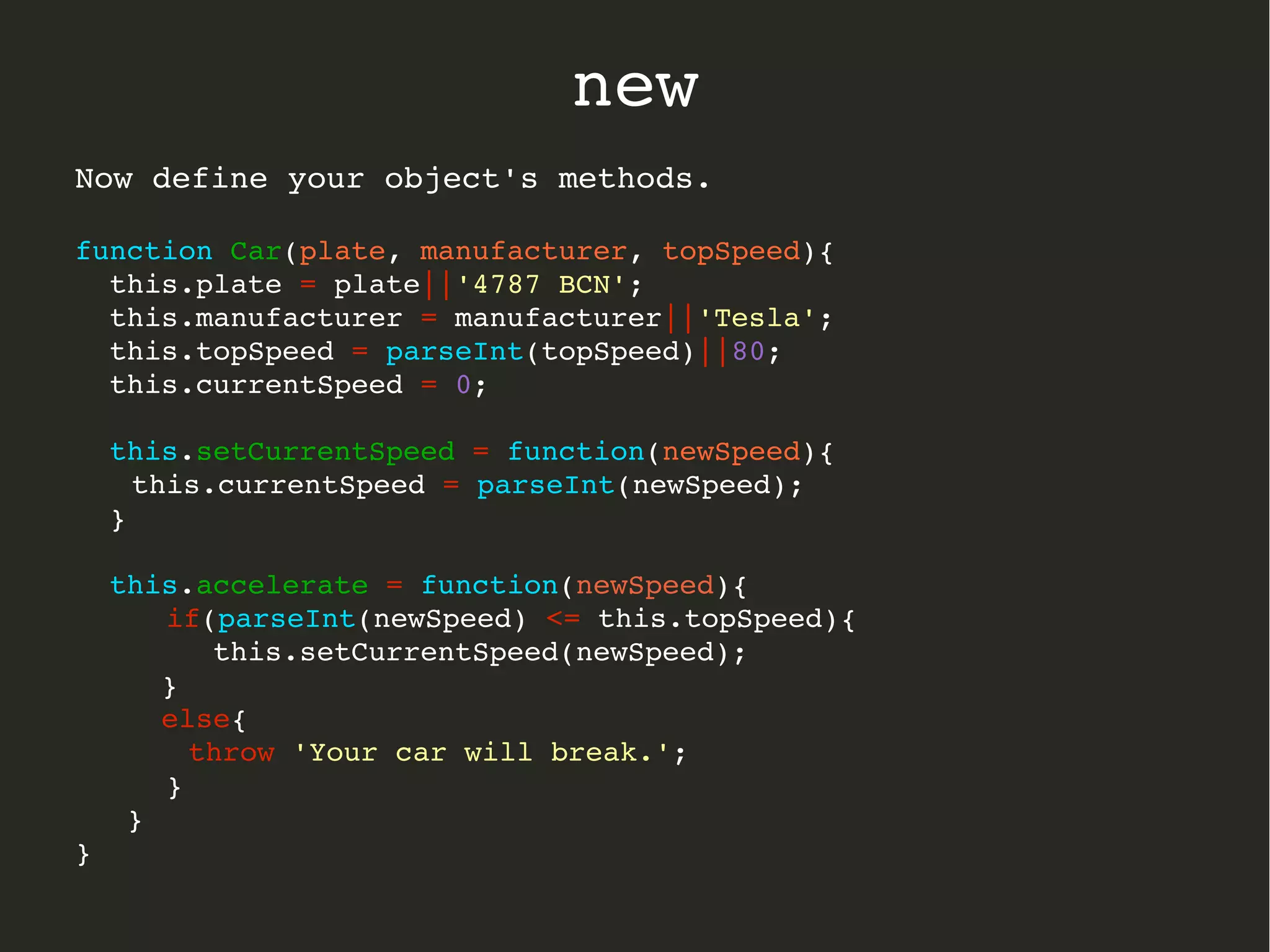
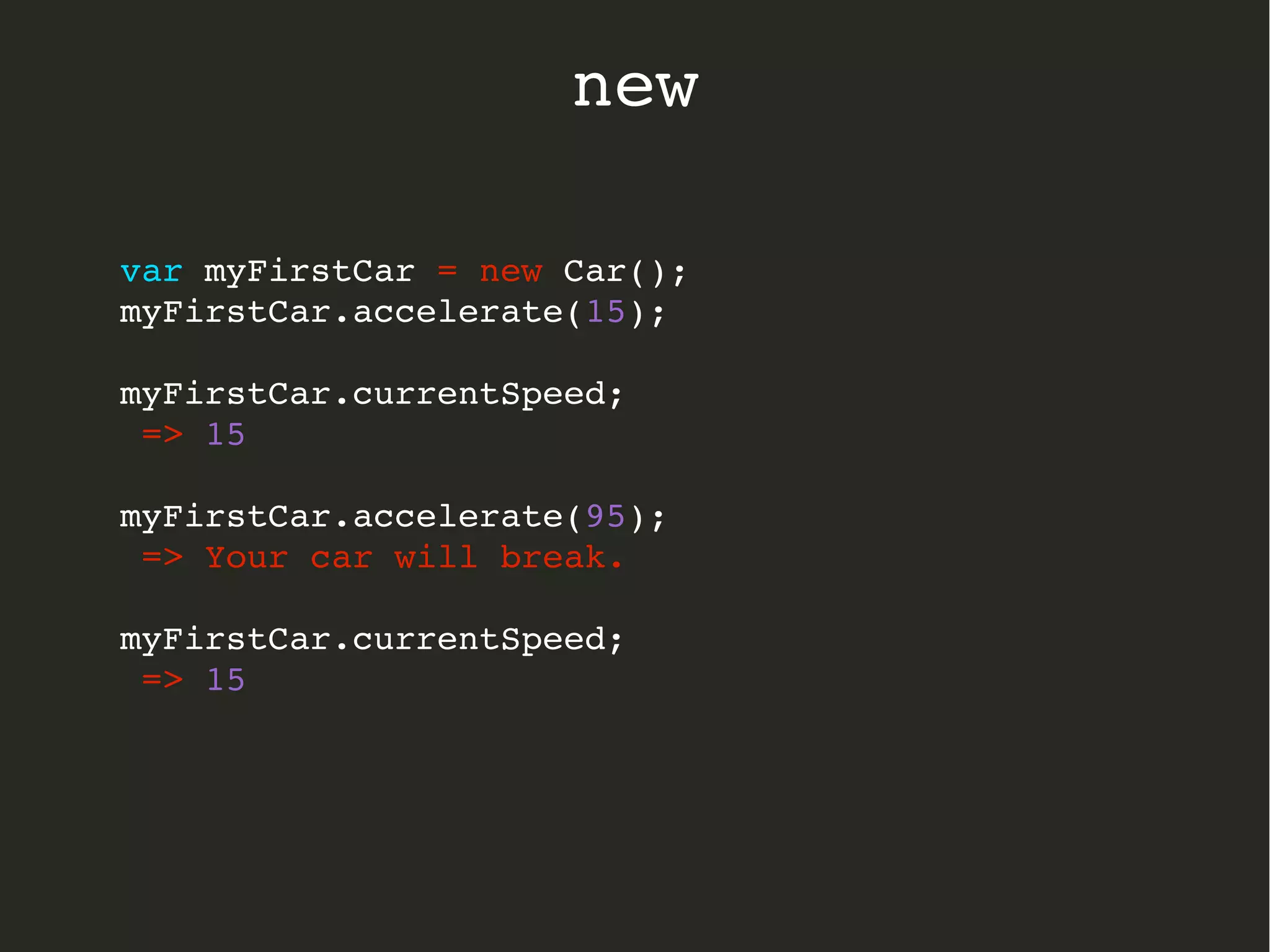
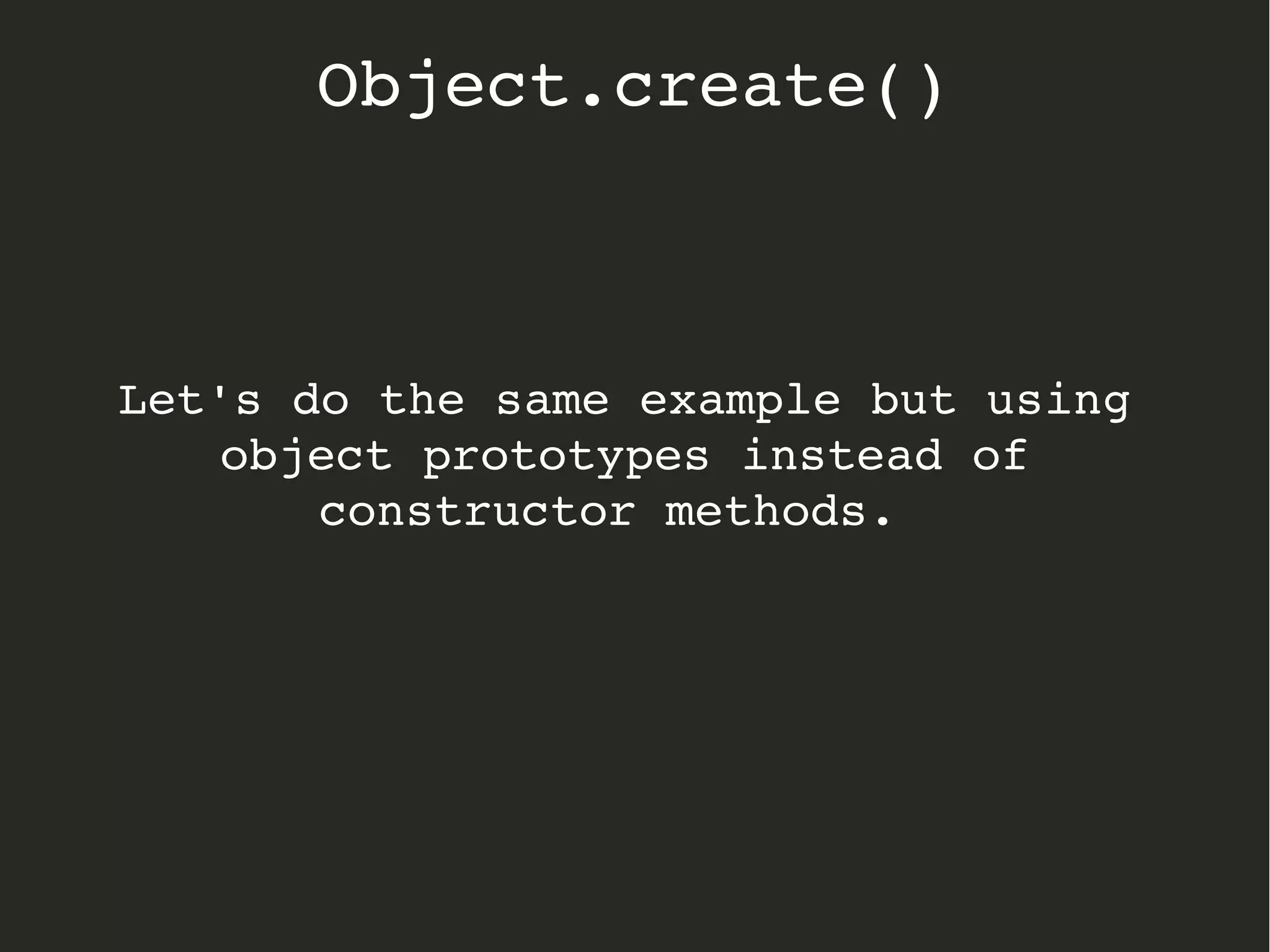
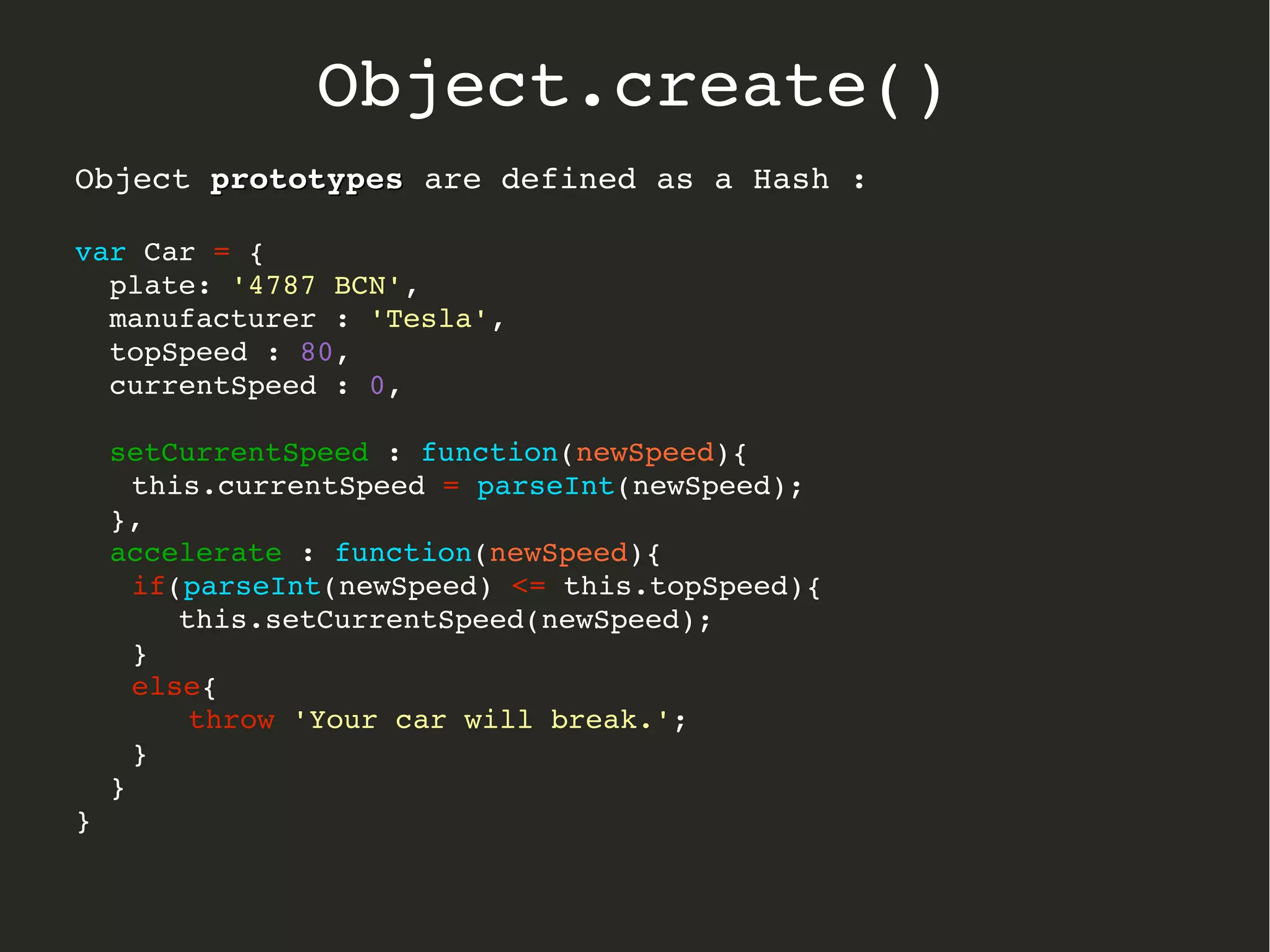
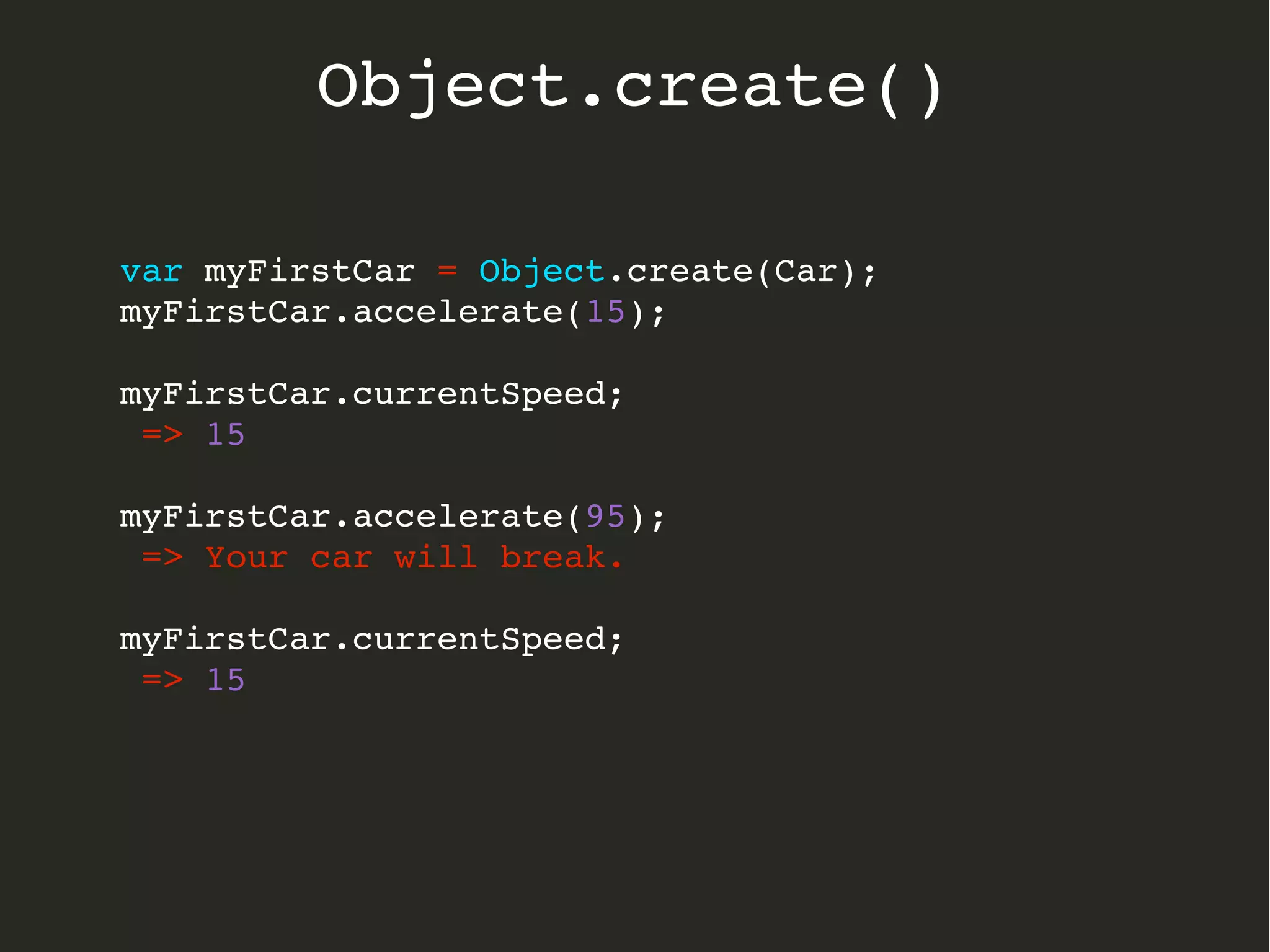
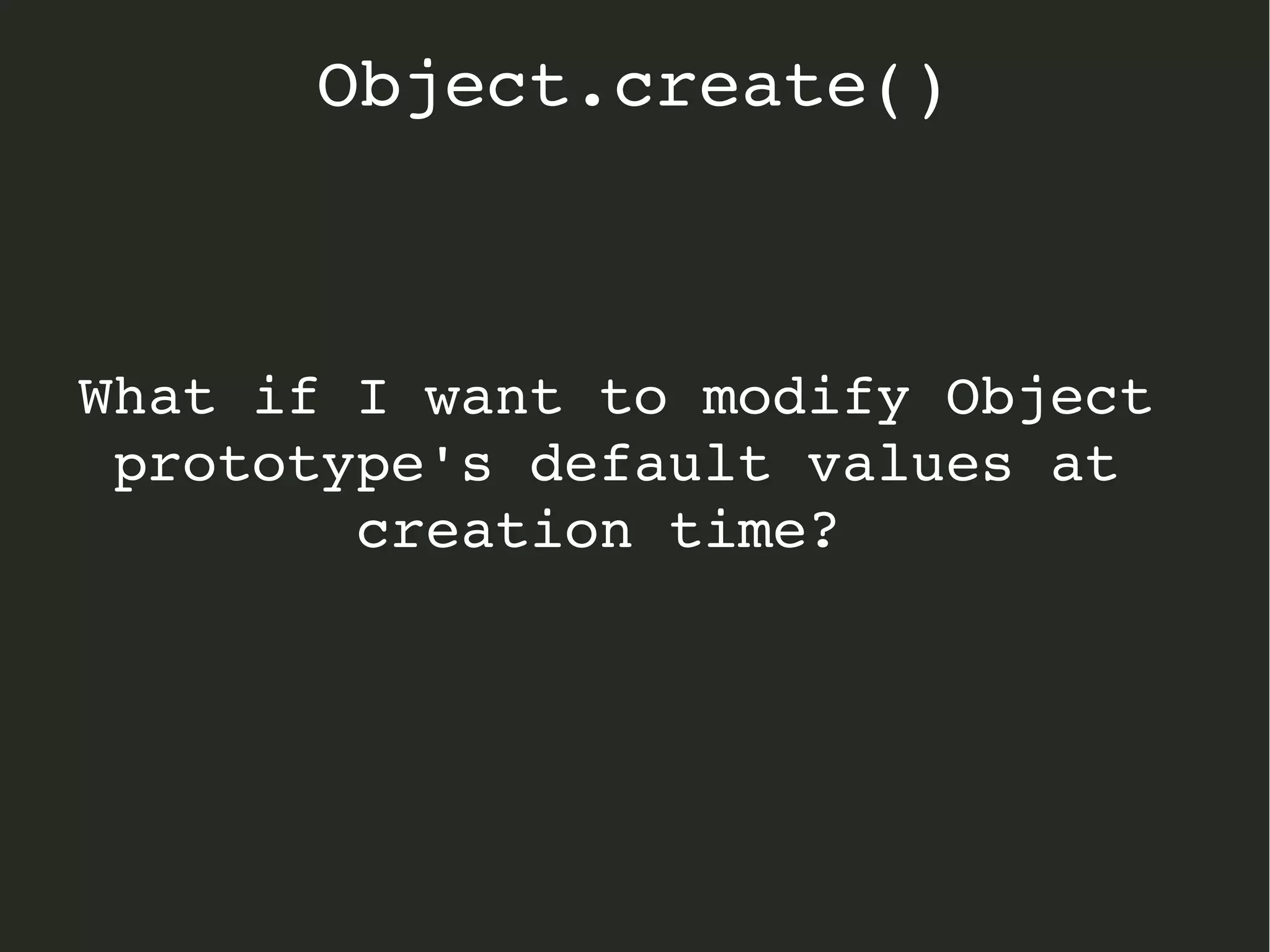
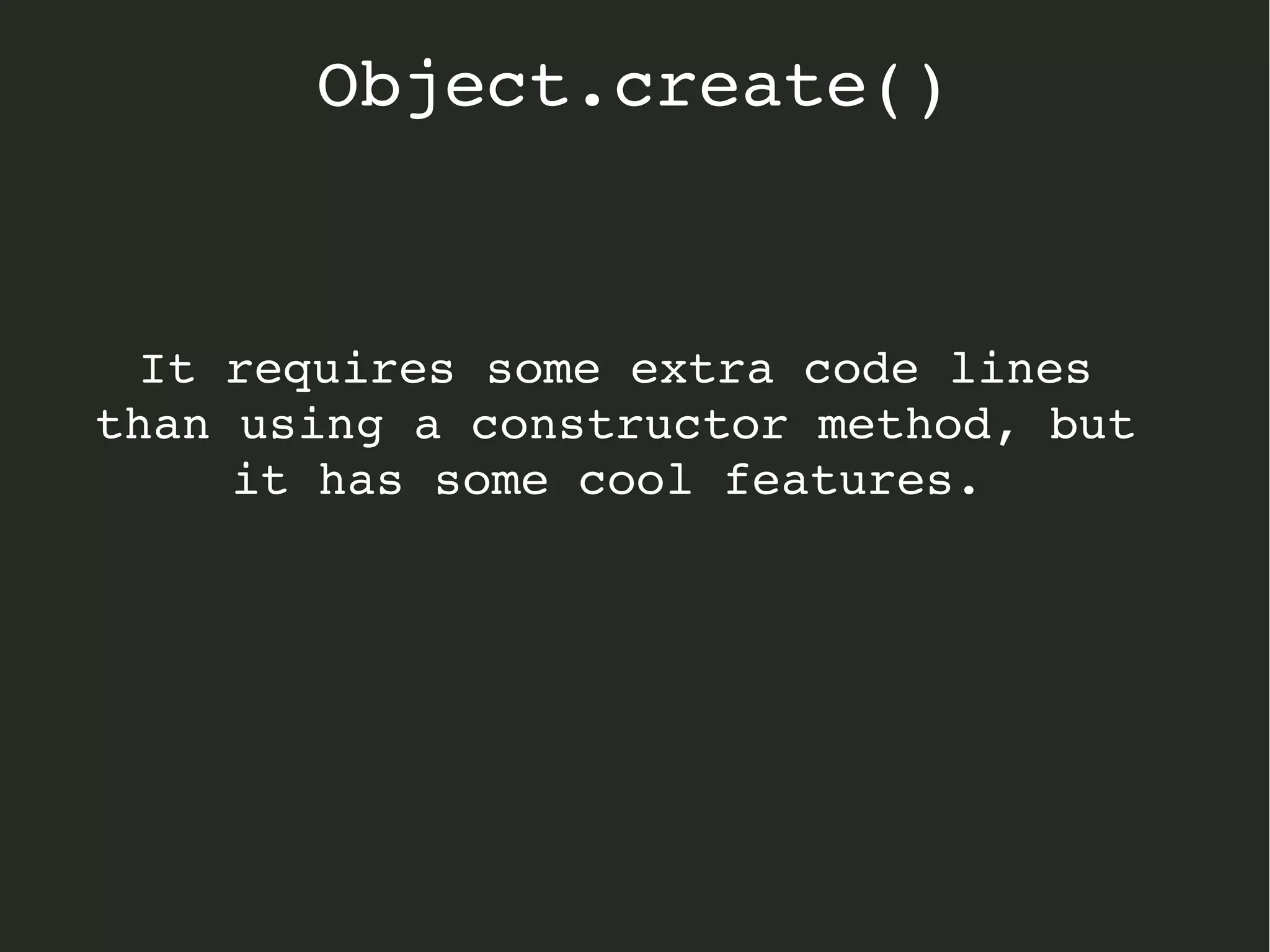
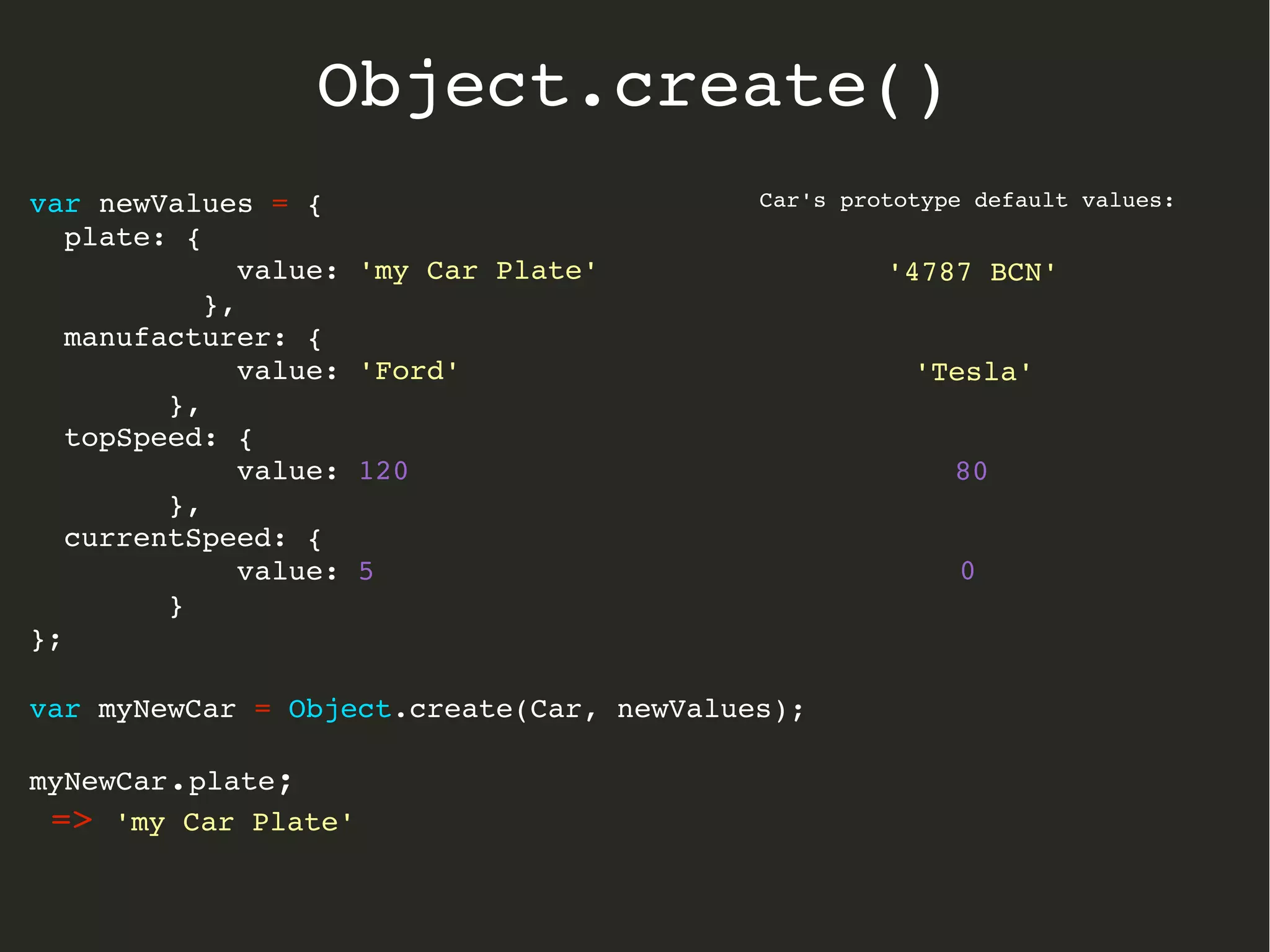
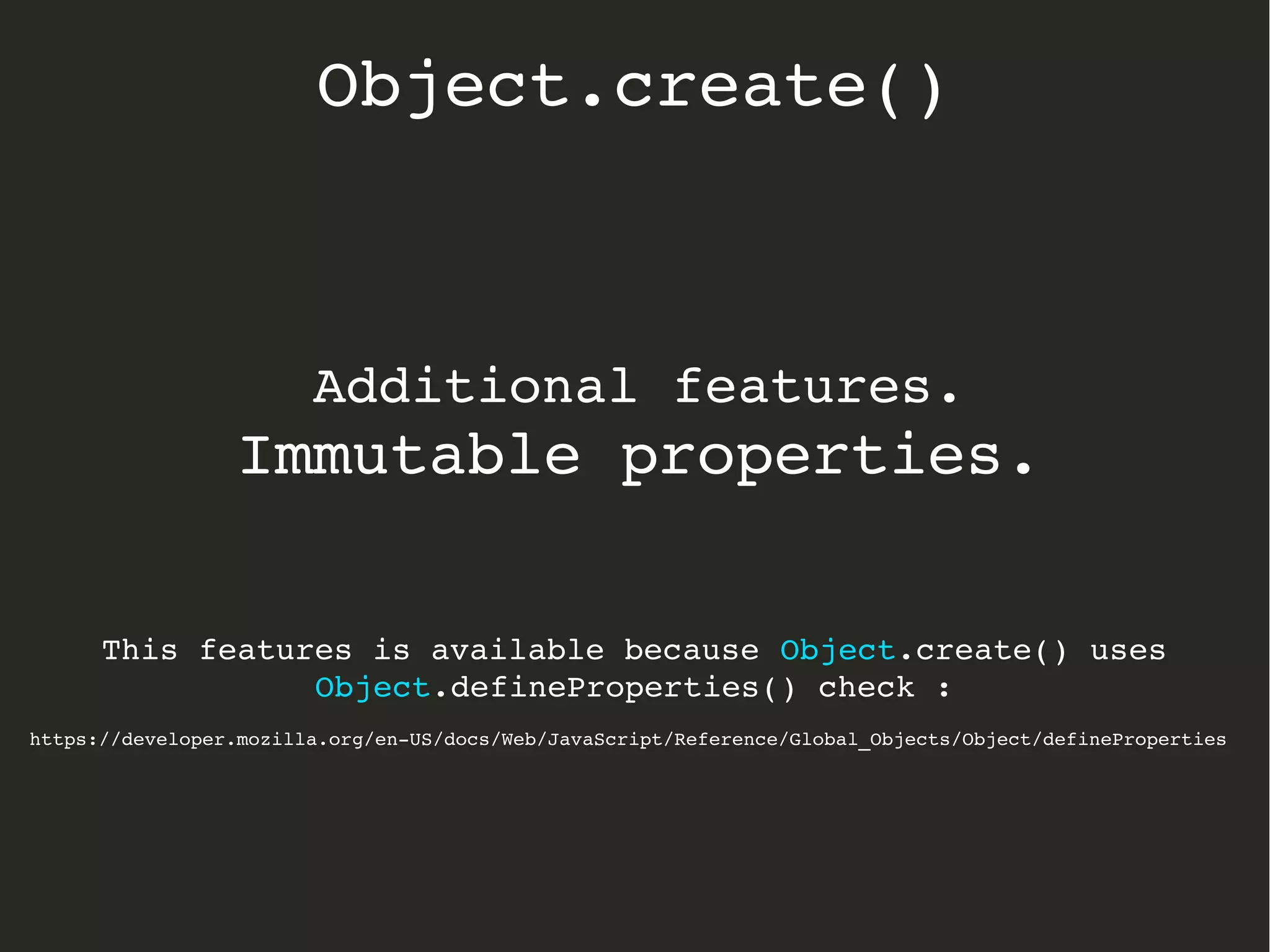
![var myNewCar = Object.create(Car, {
plate: {
writable: false,
value: 'my Car Plate'
},
[...]
});
WriteableWriteable : true if and only if the valuevalue associated with the
property may be changed with an assignment operator.
Defaults to false.
Object.create()](https://image.slidesharecdn.com/objectorientedjavascript-150308120703-conversion-gate01/75/Object-Oriented-Javascript-23-2048.jpg)
![var myNewCar = Object.create(Car, {
plate: {
writable: false,
value: 'my Car Plate'
},
[...]
});
myNewCar.plate = 'Hello';
myNewCar.plate;
=> 'my Car Plate'
Object.create()](https://image.slidesharecdn.com/objectorientedjavascript-150308120703-conversion-gate01/75/Object-Oriented-Javascript-24-2048.jpg)
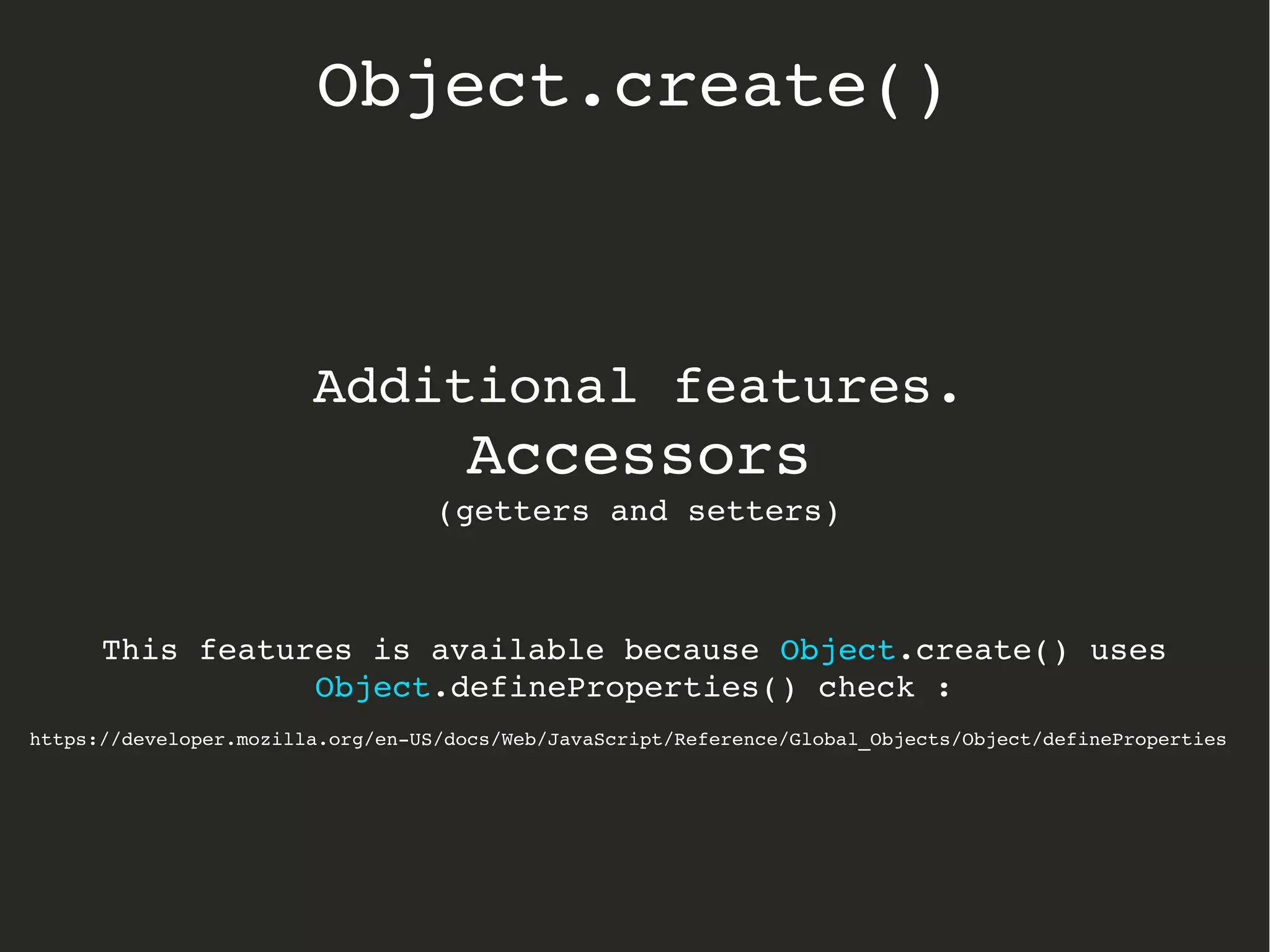
![var myNewCar = Object.create(Car, {
plate: {
writable: true,
value: 'my Car Plate',
get: function(){ return this._plate.toUpperCase(); },
set: function(value){ this._plate = value; }
},
[...]
});
Object.create()](https://image.slidesharecdn.com/objectorientedjavascript-150308120703-conversion-gate01/75/Object-Oriented-Javascript-26-2048.jpg)
![var myNewCar = Object.create(Car, {
plate: {
writable: true,
value: 'my Car Plate',
get: function(){ return this._plate.toUpperCase(); },
set: function(value){ this._plate = value; }
},
[...]
});
=> TypeError: Invalid property. A property cannot both have
accessors and be writable or have a value, #<Object>
Accessors and properties have to be
defined separately.
Object.create()](https://image.slidesharecdn.com/objectorientedjavascript-150308120703-conversion-gate01/75/Object-Oriented-Javascript-27-2048.jpg)
![var myNewCar = Object.create(Car, {
_plate: {
writable: true,
value: 'my Car Plate'
},
plate: {
get: function(){ return this._plate.toUpperCase(); },
set: function(value){ this._plate = value; }
},
[...]
});
myNewCar.plate;
=> 'MY CAR PLATE'
Object.create()](https://image.slidesharecdn.com/objectorientedjavascript-150308120703-conversion-gate01/75/Object-Oriented-Javascript-28-2048.jpg)
